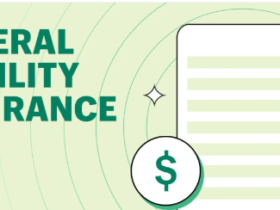Renters Insurance
Renting insurance, a home offers flexibility and convenience, but it also comes with responsibilities—especially when it comes to protecting your personal belongings and financial well-being. That’s where renters insurance comes into play. This often-overlooked policy provides invaluable coverage for tenants, ensuring peace of mind in the face of unexpected events.
In this comprehensive guide, we’ll explore everything you need to know about renters insurance: what it is, why it’s essential, what it covers, and how to choose the best policy for your needs.
What Is Renters Insurance?
Renters insurance, also known as tenant insurance, is a type of coverage designed specifically for people who rent their homes. Unlike homeowners insurance, which covers the building structure, renters insurance focuses on protecting your personal belongings and liability.
Key Features:
- Personal Property Coverage: Protects your belongings against theft, fire, or other disasters.
- Liability Protection: Covers legal expenses if someone is injured in your rental property.
- Affordable Premiums: A cost-effective way to safeguard your assets.
Why Is Renters Insurance Important?
Many tenants mistakenly believe that their landlord’s insurance policy will cover their belongings. However, this is rarely the case. Landlord insurance typically covers the structure of the building but not the tenant’s personal property or liability.
Benefits of Renters Insurance:
- Protects Your Belongings: From electronics to clothing, renters insurance ensures your items are covered.
- Covers Liability: Provides financial protection if you’re sued for property damage or injuries.
- Temporary Living Expenses: Helps cover additional costs if your rental becomes uninhabitable.
- Peace of Mind: Lets you focus on living your life without worrying about unexpected disasters.
What Does Renters Insurance Cover?
Renters insurance typically includes three main types of coverage:
1. Personal Property Coverage
This part of the policy protects your belongings, whether they’re inside your rental unit or elsewhere. Common covered perils include:
- Fire and smoke damage
- Theft or vandalism
- Water damage (not including floods)
- Windstorms or hail
- Explosions
Example: If a fire destroys your apartment, your renters insurance policy would cover the cost of replacing your furniture, electronics, and other personal items.
2. Liability Protection
Liability coverage protects you if you’re held legally responsible for injuries or property damage to others. It includes legal fees, medical bills, and settlements.
Example: If a guest slips and falls in your rental and sues you, liability coverage will help pay for their medical expenses and your legal defense.
3. Additional Living Expenses (ALE)
Also known as loss-of-use coverage, ALE helps pay for temporary housing and other living expenses if your rental becomes uninhabitable due to a covered peril.
Example: If a burst pipe floods your apartment, your policy might cover hotel costs while repairs are made.
What Isn’t Covered by Renters Insurance?
While renters insurance provides broad protection, it doesn’t cover everything. Common exclusions include:
- Flood Damage: Requires a separate flood insurance policy.
- Earthquake Damage: Typically excluded but can be added as a rider.
- High-Value Items: Expensive items like jewelry or art may need additional coverage.
- Negligence or Intentional Acts: Damage caused intentionally or through gross negligence isn’t covered.
Who Needs Renters Insurance?
Renters insurance is essential for anyone who rents their living space, whether it’s an apartment, house, or condo. Specific groups who benefit include:
1. College Students
Students living off-campus can use renters insurance to protect their belongings and liability.
2. Young Professionals
Protect personal property and mitigate liability risks in shared living spaces.
3. Families
Coverage extends to all household members, ensuring comprehensive protection.
4. Pet Owners
Liability coverage includes incidents caused by pets, such as dog bites.
How Much Does Renters Insurance Cost?
Renters insurance is one of the most affordable types of insurance. On average, policies cost between $10 and $25 per month, depending on coverage limits and location.
Factors That Influence Costs:
- Location: Higher premiums in areas prone to theft or natural disasters.
- Coverage Limits: Policies with higher limits and lower deductibles cost more.
- Property Value: The total value of your belongings affects your premium.
- Add-Ons and Riders: Additional coverage for high-value items increases costs.
How to Choose the Right Renters Insurance Policy
1. Assess Your Needs
Take inventory of your belongings and estimate their total value to determine the coverage amount.
2. Compare Quotes
Get quotes from multiple insurance providers to find the best price and coverage.
3. Understand Policy Terms
Look for details about coverage limits, deductibles, and exclusions.
4. Consider Add-Ons
If you own high-value items like jewelry or collectibles, add riders for extra protection.
5. Bundle with Other Policies
Many insurers offer discounts if you bundle renters insurance with auto or life insurance.
Tips for Maximizing Renters Insurance Benefits
1. Document Your Belongings
Take photos or videos of your possessions and keep receipts to simplify the claims process.
2. Choose Replacement Cost Coverage
Opt for replacement cost coverage instead of actual cash value to get full reimbursement for lost or damaged items.
3. Review Your Policy Annually
Update your policy as your belongings or living situation changes.
4. Ask About Discounts
Inquire about discounts for safety features like smoke alarms, security systems, or living in a gated community.
Real-Life Scenarios Where Renters Insurance Saved the Day
Case 1: Apartment Fire
A tenant’s kitchen fire spread, destroying their belongings and causing smoke damage throughout the unit. Renters insurance covered the cost of replacing their items and provided temporary housing.
Case 2: Pet Liability Claim
A tenant’s dog bit a delivery person, resulting in medical bills and a lawsuit. Liability coverage under their renters insurance handled the claim.
Case 3: Theft While Traveling
A tenant’s laptop was stolen from their hotel room. Renters insurance reimbursed the cost of a new laptop, even though the theft occurred outside their home.
Common Myths About Renters Insurance
Myth 1: It’s Too Expensive
Renters insurance is highly affordable, often costing less than a daily cup of coffee.
Myth 2: My Landlord’s Insurance Covers Me
Landlord insurance only covers the building, not your personal belongings or liability.
Myth 3: I Don’t Own Enough to Need Insurance
Even a modest inventory of electronics, furniture, and clothing can add up to thousands of dollars.
Conclusion
Renters insurance is a cost-effective way to protect your personal belongings and financial stability. Whether you’re renting a small apartment or a spacious house, this coverage offers peace of mind against life’s uncertainties.
By understanding your needs, comparing policies, and choosing the right coverage, you can safeguard your possessions and focus on enjoying your rental home. Don’t wait for the unexpected—invest in renters insurance today and live worry-free









Leave a Reply
View Comments